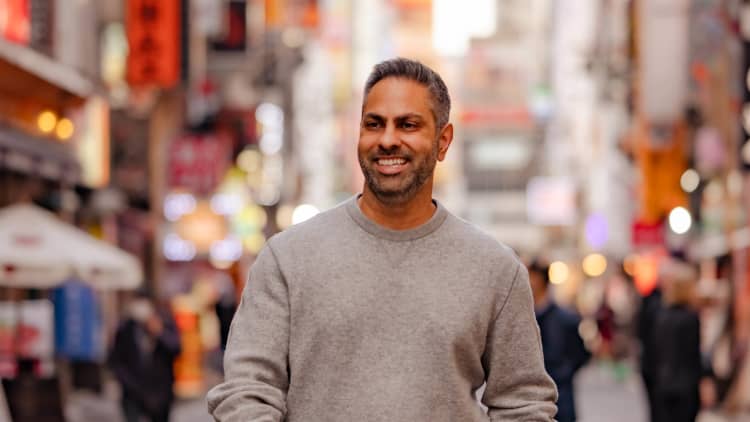It's been a year and change since the Federal Reserve began an aggressive regime of interest-rate hikes, a move meant to tamp down on rampant inflation. It seems to be working: Consumer prices rose 4.9% over the 12 months ending in April — still high, but a marked slowdown from the June 2022 peak of 9.1%.
But such a move comes with collateral damage that affects millions of Americans. The average rate on a 30-year fixed-rate mortgage has jumped to 6.35%, up from a low of 2.67% in December 2020, according to the St. Louis Fed. If you hold credit card debt, you're now paying a near record-high average interest rate of 20.33%, according to Bankrate.
That's to say nothing of the beating investors have taken in the bond market, a series of bank failures tied to rate hikes and a general worry among investors that the Fed's efforts to slow the economy could tip it into a recession.
But there's one group that undeniably benefits from higher rates: savers.
Higher short-term interest rates mean that banks pay you more for depositing your cash. Last year, banks paid out $78.7 billion to domestic deposit accounts — more than tripling the $24.3 billion payout in 2021, according to a recent study from DepositAccounts.
Some banks and account types are more generous than others, however. Here's how you can take advantage to earn the most on your cash.
Switch to a high-yield savings account at an online bank to earn the highest rate
The easiest way to cash in on higher rates is to open a high-yield savings account at an online bank. Many pay an interest rate north of 4.5%, compared with the national average savings account rate of 0.39%, according to the Federal Deposit Insurance Corporation. (To learn about the top HYSAs, see CNBC Select's Best Savings Accounts with 5% APY.)
When comparing the offerings, don't automatically go for the one with the highest rate though, says Ken Tumin, senior industry analyst at LendingTree. "Look at one that has a history of offering competitive rates," he says. "A lot of banks will create new accounts and offer a high rate while old accounts get left behind."
A bank with a slightly lower rate may offer more features and better customer service — a tradeoff that may be worth it.
"More established online banks tend to put more resources into staffing customer service, have longer hours, are better staffed," says Tumin. "They tend to have better online account management software, too, which can be important if you're transferring money between accounts online."
You don't have to ditch your old bank
Maybe you would have switched banks years ago, but it seemed like too much of a hassle to leave. After all, that bank account may be tied to direct deposit, online bill pay, credit card payments or rent payments.
Fear not, says Tumin — you can have the best of both worlds.
"One thing most people are not aware of is that you don't have to change banks. You can keep your existing checking account at your brick-and-mortar bank or credit union, open up an online savings account and link it to your existing checking account."
In doing so, you keep your existing relationship with your bank while adding an account that responds more quickly to movements in interest rates and pays higher rates overall. "It's a quick and easy way to take advantage."
If you don't want to change banks but still want to pursue a higher rate, talk to your banker. "Show them what other banks are offering and ask what they have to offer," says Tumin.
The bank may offer a competitive rate on a certificate of deposit, which may be a fine place to stash cash, depending on how quickly you'll need it. And if your bank has a brokerage arm, you may be able to put your cash in a money market mutual fund.
DON'T MISS: Want to be smarter and more successful with your money, work & life? Sign up for our new newsletter!
Get CNBC's free report, 11 Ways to Tell if We're in a Recession, where Kelly Evans reviews the top indicators that a recession is coming or has already begun.
Check out: Inflation slows to 4.9% in April—here’s what to expect for the rest of 2023



